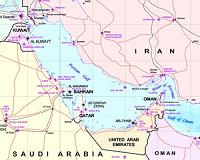 |
Campinas, Brazil (SPX) May 28, 2010 Scientists in Brazil are reporting for the first time that coffee beans contain proteins that can kill insects and might be developed into new insecticides for protecting food crops against destructive pests. Their study, which suggests a new use for one of the most important tropical crops in the world, appears in ACS' Journal of Agricultural and Food Chemistry, a bi-weekly publication. Peas, beans and some other plant seeds contain proteins, called globulins, which ward off insects. Coffee beans contain large amounts of globulins, and Paulo Mazzafera and colleagues wondered whether those coffee proteins might also have an insecticidal effect. The high heat of roasting destroys globulins, so that they do not appear in brewed coffee. Their tests against cowpea weevil larva, insects used as models for studying the insecticidal activity of proteins, showed that tiny amounts of the coffee proteins quickly killed up to half of the insects. In the future, scientists could insert genes for these insect-killing proteins into important food crops, such as grains, so that plants produce their own insecticides, the researchers suggest. The proteins appear harmless to people.
Share This Article With Planet Earth
Related Links American Chemical Society Download Full Text Article Farming Today - Suppliers and Technology
 Gulf states face food crisis
Gulf states face food crisisManama, Bahrain (UPI) May 27, 2010 The scramble by Saudi Arabia and the Persian Gulf states to secure strategic food supplies by buying up vast tracts of farmland in Africa and Asia won't be enough to stave off a surge of food imports over the next decade, a Saudi bank report says. "The era of cheap food is over," NCB Capital, the investment arm of Saudi Arabia's National Commercial Bank, declared in the report issued se ... read more |
|
| The content herein, unless otherwise known to be public domain, are Copyright 1995-2010 - SpaceDaily. AFP and UPI Wire Stories are copyright Agence France-Presse and United Press International. ESA Portal Reports are copyright European Space Agency. All NASA sourced material is public domain. Additional copyrights may apply in whole or part to other bona fide parties. Advertising does not imply endorsement,agreement or approval of any opinions, statements or information provided by SpaceDaily on any Web page published or hosted by SpaceDaily. Privacy Statement |